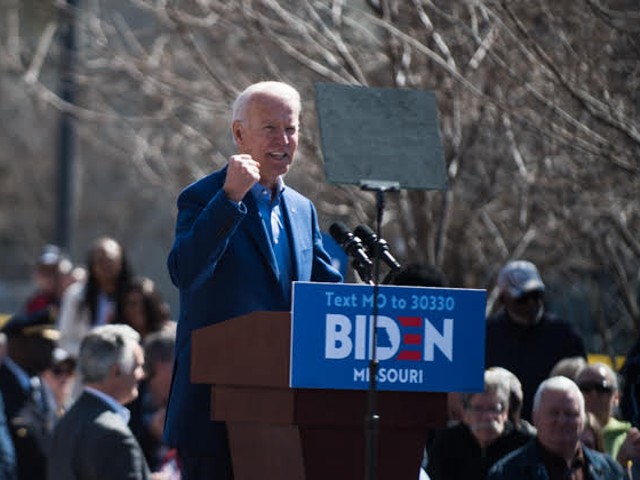
Here is the truth: Dimetrious Woods is not supposed to be outside a prison. He's not supposed to be serving boxes of hot food through a trailer window or tinting windows or paying rent, and certainly not being a father to his children outside the confines of a secure prison visitation room. According to the Missouri Supreme Court, he should have never been paroled from prison in the first place.
The decision by the state's highest court last month stood as a victory for the Missouri Attorney General's Office, which spent years fighting Woods' various appeals as the state sought to claw back its inmate to a cellblock, even while Woods was building a life on the outside.
By Woods' count, he's fielded about a dozen inquiries from the relatives and loved ones of inmates serving no-parole drug sentences; just like him, the inmates are marked by what is arguably Missouri's harshest anti-drug sentencing enhancement law. He fields their questions and listens to their worries, but he admits, "I can't give people direct answers. I can't tell them what to do."
For now, Woods' attorneys have filed a last-ditch motion asking the state supreme court to reconsider their ruling, and presently that's the only thing staying the warrant for his arrest. All that's done is buy Woods a bit more time before the court responds. But time is not on his side. He has weeks, maybe months.
The front of Woods Auto functions as a kind of convenience store, but behind the cashier, in the converted garage, Woods has built a tinting studio. Today, he's working on a black Kia sedan.
The possibility of escape has crossed his mind. He could try and cross the border, to leave behind a legal system that can't seem to give up the war on drugs. But he has much to lose, especially when it comes to his two youngest children, one in middle school, the other just starting high school. He watched them grow up in photographs and prison visits. He wants to be a father to them, and if he has to, he knows he can do that from prison. He can't be a parent if he's on the lam.
"Running, it ain't an option," he says with finality. "No judge, nobody can stop me from being a father."
Woods sprays down the Kia's front passenger window, preparing it for the eventual tinting. He unrolls a small tape measure — this task, unlike his other culinary skills, requires precise measurement — just as Meek Mill's "Save Me" comes on the shop's speakers. Woods hums along. The song describes an inmate's daily schedule: 23 hours in a cell, one hour outside in the yard.
Woods pauses his spraying for a moment and listens as the beats and lyrics describe life on the inside. He picks up the words as the chorus breaks.
"Somebody save me, save me. Twenty-three and one, it almost drove me crazy. In a cell all alone, can't let it phase me. I just wanna make it home to see my baby."
To understand why the case of Dimetrious Woods is so unusual, you have to go back a bit — not to the day of his arrest in 2006, when he sat in a passenger seat of a gold Buick Lucerne bound for St. Louis with 9,000 grams of powdered cocaine in the trunk, but to a day in March 2018. For Woods, the day was the worst kind of normal. It was prison.
It was early morning, and in a space not much larger than the Munchi's Fish & Chicc'n food trailer, inmate #331953 stared at the ceiling of his cell, too anxious to drift back to sleep. By then, he'd completed eleven years of his sentence, not even halfway through his full term. Still, he couldn't help but think about driving on Highway 63, the road that would take him north, back to Columbia. He imagined holding a grandchild he had only met through photos.
These were not dreams, but anticipations. That week, he'd learned that the state's probation authorities had approved his release from prison in a matter of weeks.
Later that day, over the staticky prison phone line, he updated a Riverfront Times reporter about his pending release. "I can barely believe it worked," he says. "I mean, how often do they make laws that benefit a convict?"
Woods' release marked the first time that a judge's order had forced the Missouri Department of Corrections to provide a parole hearing to a drug offender sentenced under the state's unique three-strike, ten-year-minimum, no-parole drug sentencing enhancement. That law was known as the "prior and persistent drug offender" statute, or PPDO, and prosecutors could use it to guarantee that defendants' third felony convictions automatically canceled their parole eligibility. The law made no distinction between violent and non-violent crimes. It also set a mandatory prison sentence at ten years to life.
Woods' case was first featured in an RFT investigation in 2016, part of a series of cover stories that documented the enduring impact of PPDO, which targeted drug offenders for special punishment.
As the RFT would come to report, Woods was far from the only drug offender who was serving an outsized sentence. At the time, according to data from the Missouri Department of Corrections, 149 drug offenders were serving these special, no-parole sentences in Missouri prisons, mostly for trafficking and distribution. Among them are Michael Mayo, sentenced to twenty years for two grams of crack and a joint's worth of marijuana; Lewis Grant, who received ten years in prison for 2.78 grams of crack cocaine; Robert Franklin, still serving a 22-year sentence for transporting a pound of marijuana; and Darryl Walton, whose possession of two grams of crack got him twelve years behind bars.
Then there was the case of Jeff Mizanskey. Sentenced to life without the possibility of parole for charges related to trafficking marijuana, the case generated public outrage, eventually rising to the desk of Missouri Governor Jay Nixon. In 2015, the governor commuted Mizanskey's sentence and gave the 60-year-old inmate a parole hearing, which led to his release after 21 years in prison.
For Woods, Mizanskey's release was a ray of hope. He still remembers what that felt like, the memory of reading the news coverage in the prison library, the powerful emotional attachment to the possibility, no matter how slight, that in the world of locked doors there was a new window opening.
And so today, when Woods gets calls from strange numbers, he picks up the call, no matter how many other tasks he's juggling. He talks to wives and girlfriends, relatives of drug offenders who read news stories about his ongoing case. He tries to answer their questions, because he knows what they're going through.
"When people are sending you messages like 'You changed my life' and 'The whole camp is rooting for you' and 'I believe in you' — you gotta answer that. They want hope."
Woods, though, never wanted that responsibility. It's not easy carrying someone else's hope.
"It's like I'm a vessel, that's all it is," Woods says. "I'm open with it, but I'm not cool with it. I'm not cool with talking to y'all right now. I wasn't raised with it. I was a shy kid, I'd duck off in the corner and do my thing, or I was off in my criminality. But now it's bigger than me."
The sheer size of the problem, however, is far bigger than just one man. For the past two years, Woods has been the one who got away. But he always knew that it might end like this.






